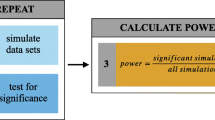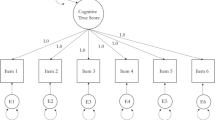Abstract
A decision maker (DM) may not perfectly maximize her preference over the feasible set. She may feel it is good enough to maximize her preference over a sufficiently large consideration set; or just require that her choice is sufficiently well-ranked (e.g., in the top quintile of options); or even endogenously determine a threshold for what is good enough, based on an initial sampling of the options. Heuristics such as these are all encompassed by a common theory of order-k rationality, which relaxes perfect optimization by only requiring choices from a set S to fall within the set’s top k(S) elements according to the DM’s preference ordering. Heuristics aside, this departure from rationality offers a natural way, in the classic ‘as if’ tradition, to gradually accommodate more choice patterns as k increases. We characterize the empirical content of order-k rationality (and related theories), and provide a tractable testing method which is comparable to the method of checking SARP.
Similar content being viewed by others
References
Aleskerov, F., Bouyssou, D., Monjardet, B.: Utility Maximization, Choice and Preference. Springer, Berlin (2007)
Anbarci, N.: Noncooperative foundations of the area monotonic solution. Q. J. Econ. 108, 245–258 (1993)
Apesteguia, J., Ballester, M.: A measure of rationality and welfare. J. Polit. Econ. 123(6), 1278–1310 (2015)
Baigent, N., Gaertner, W.: Never choose the uniquely largest: a characterization. Econ. Theory 8, 239–249 (1996). https://doi.org/10.2139/SSRN.1697452
Barberà, S., Coelho, D.: On the rule of \(k\) names. Games Econ. Behav. 70(1), 44–61 (2010)
Barberà, S., Coelho, D.: Balancing the power to appoint officers. Games Econ. Behav 101, 189–203 (2017)
Barberà, S., Coelho, D.: On the advantages and disadvantages of being the first mover under rules of k names. Int. J. Econ. Theory 14, 51–60 (2018)
Barberà, S., Neme, A.: Ordinal relative satisficing behavior. Barcelona GSE Working Paper No. 790 (2014)
Becker, R., Chakrabarti, S.: Satisficing behavior, Brouwer’s fixed point theorem and Nash equilibrium. Econ. Theory 26, 63–83 (2005). https://doi.org/10.1007/s00199-004-0519-z
Börgers, T., Sarin, R.: Naïve reinforcement learning with endogenous aspirations. Int. Econ. Rev. 41, 921–950 (2000)
Caplin, A., Dean, M., Martin, D.: Search and satisficing. Am. Econ. Rev. 101, 2899–2922 (2011)
Chambers, C., Yenmez, B.: A simple characterization of responsive choice. Games Econ. Behav. 111, 217–221 (2018)
Cherepanov, V., Feddersen, T., Sandroni, A.: Rationalization. Theor. Econ. 8, 775–800 (2013)
de Clippel, G., Rozen, K.: Bounded rationality and limited datasets. Cowles Discussion Paper 1853 (2012)
de Clippel, G., Rozen, K.: Bounded rationality and limited datasets. Theor. Econ. 122, 1203–1234 (2020)
de Clippel, G., Eliaz, K., Knight, B.: On the selection of arbitrators. Am. Econ. Rev. 104, 3434–3458 (2014)
Eliaz, K., Richter, M., Rubinstein, A.: Choosing the two finalists. Econ. Theory 46, 211–219 (2011)
Houthakker, H.S.: Revealed preference and the utility function. Economica 17(66), 159–174 (1950)
Karandikar, R., Mookherjee, D., Ray, D., Vega Redondo, F.: Evolving aspirations and cooperation. J. Econ. Theory 80, 292–331 (1998). https://doi.org/10.1006/jeth.1997.2379
Kim, Y.: Satisficing and optimality in \(2\times 2\) common-interest games. Econ. Theory 13, 365–375 (1999). https://doi.org/10.1007/s001990050259
Lleras, J., Masatlioglu, Y., Nakajima, D., Ozbay, E.: When more is less: choice by limited consideration. J. Econ. Theory 170, 70–85 (2017). https://doi.org/10.1016/j.jet.2017.04.004
Manzini, P., Mariotti, M.: Sequentially rationalizable choice. Am. Econ. Rev. 97(5), 1824–1839 (2007)
Manzini, P., Mariotti, M.: Categorize then choose: boundedly rational choice and welfare. J. Eur. Econ. Assoc. 10(5), 1141–1165 (2012)
Masatlioglu, Y., Nakajima, D., Ozbay, E.: Revealed attention. Am. Econ. Rev. 102(5), 2183–2205 (2012)
Papi, M.: Satisficing choice procedures. J. Econ. Behav. Organ. 84(1), 451–462 (2012)
Rubinstein, A., Salant, Y.: A model of choice from lists. Theor. Econ. 1, 3–17 (2006)
Samuelson, P.: A note on the pure theory of consumer’s behavior. Economica 5(17), 61–71 (1938)
Sen, A.: Maximization and the act of choice. Econometrica 65, 745–779 (1993)
Simon, H.: A behavioral model of rational choice. Q. J. Econ. 69, 99–118 (1955)
Author information
Authors and Affiliations
Corresponding author
Additional information
Publisher's Note
Springer Nature remains neutral with regard to jurisdictional claims in published maps and institutional affiliations.
Independently of each other, Relative Satisficing was proposed and studied in Barberà and Neme (2014), while Minimal Consideration was proposed and studied in a supplement to de Clippel and Rozen (2012). The present paper replaces and goes beyond those earlier discussions of these interesting theories. Salvador Barberà acknowledges financial support from the Spanish Ministry of Economy and Competitiveness, through the Severo Ochoa Programme for Centers of Excellence in R&D (SEV-2015-0563 and CEX2019-000915-S) and Grant ECO2017-83534-P and FEDER, and from the Generalitat de Catalunya, through Grant 2017SGR0711. Alejandro Neme acknowledges financial support received from the UNSL, through Grant 319502, and from the CONICET, through Grant PIP 112-200801-00655, and from AGENCIA, through Grant PICT 2017-2355, and from the Spanish Ministry of Economy and Competitiveness, through Grant ECO2017-83534-P.
Rights and permissions
About this article
Cite this article
Barberà, S., de Clippel, G., Neme, A. et al. Order-k rationality. Econ Theory 73, 1135–1153 (2022). https://doi.org/10.1007/s00199-021-01350-z
Received:
Accepted:
Published:
Issue Date:
DOI: https://doi.org/10.1007/s00199-021-01350-z




